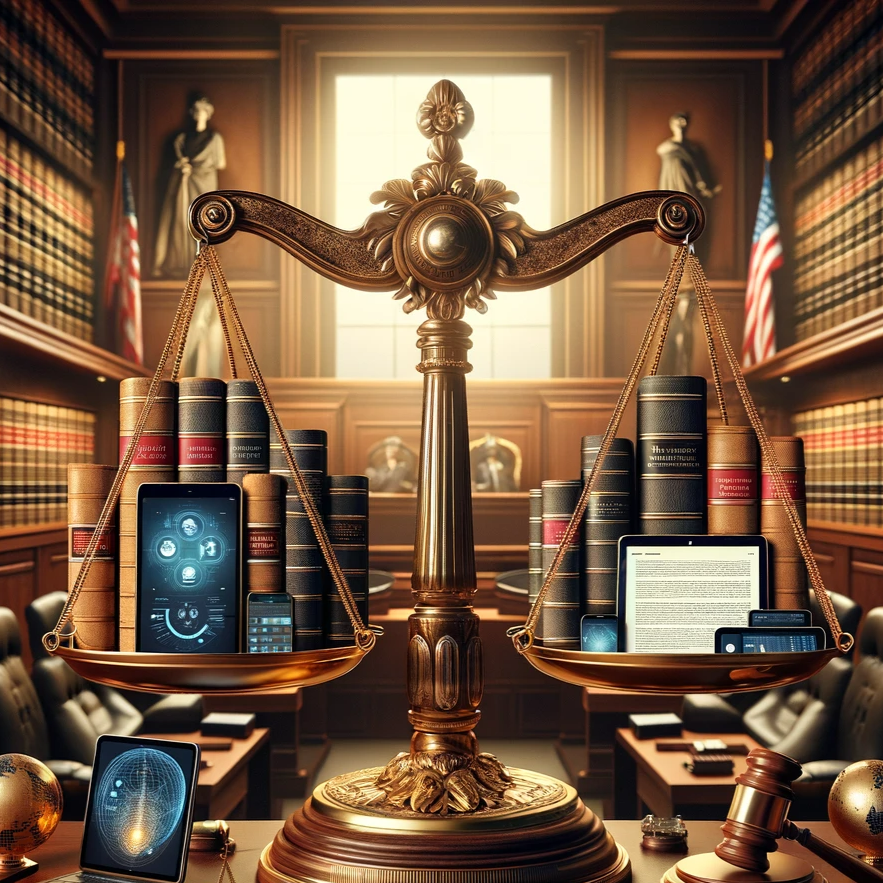
Legal Tech and AI: When Courts Sanction Access to Justice
David Walton
Jan 05, 2024
In the ever-evolving landscape of the legal industry, technology plays a critical role in achieving affordable access to legal services, democratizing individual justice, and enhancing the efficiency of mundane and repetitive legal tasks. Beyond legal apps and online legal services, AI-based tools have emerged as the next innovation in legal tech. However, there are already indications that the courts and their judges may not be fully aligned with the transformations driven by new legal tech.
The cases of Middlebrooks v. City of Macon-Bibb County and Scott v. Fannie Mae have raised important questions about the role of courts and judges in accommodating individuals who turn to AI tools for assistance due to financial constraints. Are courts unintentionally discouraging the use of innovative tools that can help level the legal playing field?
The Middlebrooks Dilemma
In the case of Middlebrooks v. City of Macon-Bibb County, a pro se litigant found themselves in a challenging situation when the judge suspected that their complaint had been "ghostwritten" by an AI tool like ChatGPT. Instead of addressing the substance of the complaint, the judge ordered clarification regarding the use of AI assistance. This incident highlights a significant issue—the assumption that only lawyers can and should draft well-written legal documents.
It's crucial to recognize that consumer-based legal technologies, including AI tools, can serve as valuable resources for those who cannot afford legal representation. Pro se litigants often struggle to navigate complex legal procedures and craft effective pleadings. Online legal services and AI tools help bridge this gap, offering guidance and support to individuals who would otherwise be at a disadvantage. The Middlebrooks case raises concerns about whether courts are inadvertently discouraging those who seek the court’s assistance in resolving important matters from using AI tools to effectively engage the court’s processes and procedures.
The Scott v. Fannie Mae Conundrum
In another unrelated case, Scott v. Fannie Mae, a pro se defendant faced sanctions for misrepresentation, with part of the blame placed on an alleged overreliance on AI tools like ChatGPT. This situation underscores the importance of understanding the limitations and responsibilities associated with using AI in legal proceedings. While AI can assist in drafting documents and conducting legal research, it should not replace ethical and honest advocacy.
Judges and courts play a pivotal role in overseeing cases and ensuring that justice is equally served. However, they also have an obligation to adapt to the changing legal landscape and accommodate individuals who require legal services but cannot afford them. Rather than penalizing those who turn to consumer-facing legal technologies as an "only resort," judges should consider the broader context of access to justice.
What Are the Obligations of Judges and Courts?
If we believe in a just and supportive society, courts and their judges should acknowledge that not everyone can afford legal representation. Consumer-facing legal technologies are designed as cost-effective alternatives, providing a lifeline to those in need. Courts should promote and provide guidance on how these tools can be integrated into the judicial process rather than scoffing at and hindering such options. Offering guidelines and additional resources can help ensure that individuals receive a fair opportunity to utilize the services of the court. By not offering such support, judges and courts are likely exacerbating the justice gap, leaving vulnerable individuals without access to legal support.
← Older Post Newer Post →

